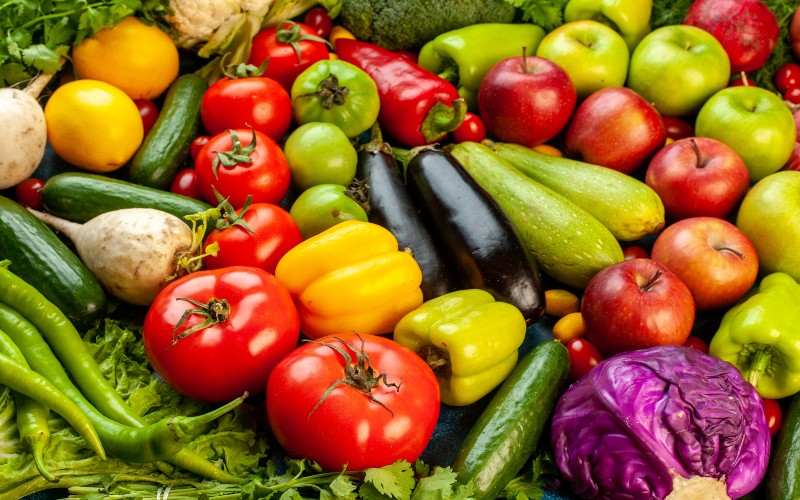Mothers on the brink: Challenges of feeding babies born with cleft lips

The heartbreak only grew when her baby struggled to feed—a simple act every mother cherishes. The realisation that she had to express milk manually was overwhelming, particularly in a home without electricity.
For any mother, birthing a child with a deformity is an emotional journey filled with pain, self-doubt, and unimaginable strength.
For Caroline Wanjiku, this became her reality when she welcomed her fourth child—a baby born with a cleft lip. In her small rural community, where such conditions were unheard of, whispers of judgement quickly turned into cruel labels, branding her as "cursed."
More To Read
- Breastfeeding in crisis: The hidden impact of early formula use in Kenya
- How misconceptions are undermining breastfeeding efforts in Kenya
- Mastitis pain drives Kenyan mothers to quit breastfeeding too soon, experts warn
- Marsabit women blame hunger for poor breastfeeding habits
- Heartbroken mothers face the struggles of breastfeeding babies with cleft lips
- Families failure to space children worsens breastfeeding challenges in Kwale
The heartbreak only grew when her baby struggled to feed—a simple act every mother cherishes. The realisation that she had to express milk manually was overwhelming, particularly in a home without electricity.
Wanjiku's world collapsed when her husband, rather than providing support, abandoned her. He blamed her, saying she had given birth to a child with "an open mouth and nose."
Left alone to navigate this new reality, she faced not only the challenges of caring for her newborn but also the burden of society's stigma and the crushing weight of poverty.
“Without electricity, expressing milk became an exhausting ordeal. The constant stress of lighting firewood in the dead of night just to warm water and prevent the milk from spoiling was overwhelming. Without a fridge, keeping the milk clean and safe felt like an impossible task. Eventually, the burden became too much, and in desperation, I resorted to feeding my baby goat’s milk.”
For a time, she borrowed money to buy baby formula, desperately trying to give her child the nutrition he needed. But as the debts mounted, she found it impossible to continue.
Someone eventually suggested goat’s milk as an alternative, and though she knew it wasn’t the ideal choice compared to exclusive breastfeeding, she had no other option. It became a lifeline in a situation where every day felt like a battle to keep her baby fed.
“My breast milk dried up after about a month. Thankfully, my son hasn’t been sick, and I can only hope for the best. Goat’s milk became our lifeline—it was all I could afford with the little I had,” she said.
She mentioned that her baby struggled to gain weight and had low blood levels. At five months, after being turned away from several hospitals due to the baby’s underweight condition, she finally saw progress. The baby gained weight, and she was eventually able to have the surgery done at five months.
The World Health Organisation (WHO) notes that breastfeeding is one of the most effective ways to ensure the health and survival of children. Yet, despite these recommendations, fewer than half of infants under six months old are exclusively breastfed.
Breast milk is the ideal food for infants—it’s safe, clean, and rich in antibodies that help protect against many common childhood illnesses. It provides all the energy and nutrients needed during the first months of life.
For many mothers of babies born with a cleft lip and palate, one of their biggest challenges is feeding. When their babies can’t latch properly, they are forced to express milk, and while they try their best to follow the correct procedures, the constant crying can push some mothers to take shortcuts to calm their children.
Babies with clefts tend to cry more, especially when hungry, because they don’t get full; as they suck, they often swallow air, which leads to gas and makes them hungry again more quickly. This cycle can be deeply tormenting for mothers, leaving them feeling helpless and exhausted.
Mothers in rural areas
Living in a rural area with limited resources presents countless challenges for newborns who must survive on whatever is available.
For Mercy Chelagat and her family, this meant feeding her baby with what she could afford, as formula milk was expensive and hard to find.
"I did my best to feed my baby and keep him clean, but farm life is tough," Chelagat shared. "Sometimes, all we have is cow’s milk, and no one can afford formula. When my breast milk dried up, I had no choice but to give him cow’s milk."
Chelagat had received guidance from the nurses during her clinic visits, but despite her efforts, the baby’s inability to latch and the insufficient milk supply forced her to make tough decisions.
"There are times when you’re forced to choose between what’s right and just trying to survive. You can’t watch your child go hungry, so you give them whatever you have," she said.
Chelagat’s daily routine involves warming the cow’s milk, adding water to dilute it, and then storing it in a flask to keep it warm throughout the day. In addition to the milk, she also prepares some potatoes and avocado as part of the baby’s meals. Despite the challenges, she’s relieved that her baby has been doing well after three months of this routine.
For mothers with newborns, the constant struggle to protect their babies from diseases like diarrhoea—one of the leading causes of child mortality—can be overwhelming.
Many mothers find themselves unsure of the best course of action. Some even resort to extreme measures, such as cleaning their breasts with alcohol-based wipes or sterilising the containers used to store milk, in a desperate attempt to keep their babies safe and healthy.
Proper hygiene
Nurse Sarah Ndegwa, emphasises the importance of proper hygiene when it comes to breastfeeding and feeding practices. She explains that maintaining proper hygiene is crucial to prevent any potential infections from being transmitted to the baby through breast milk or formula.
"Before feeding your baby, it’s essential to wash your breasts with soap and water," Nurse Ndegwa advises. "We’ve seen cases where some mothers, after spending the whole day outside, feed their babies without even wiping their breasts, which can lead to serious health issues like diarrhoea."
She further stresses that proper cleaning doesn’t need to be expensive or complicated. Simple soap and water are sufficient and readily available for most mothers.
Sarah warns that using alcohol-based wipes to clean the breast and immediately feeding the baby afterwards can pose a danger to the child. Instead, she recommends using alcohol-free wipes if cleaning is necessary before breastfeeding.
"For mothers who can afford it, using a steriliser to disinfect feeding bottles for 24 hours is an excellent option to ensure they remain free from contamination," Sarah adds. "However, cleaning the bottles with very hot water can also be just as effective."
In terms of formula, Sarah advises that it should never be kept for more than an hour. Additionally, only water should be mixed with the formula when preparing it.
For mothers with access to a fridge, expressing and storing milk is a viable option, as long as the milk is stored properly. However, for those without a refrigerator, it’s best to express milk and feed the baby immediately to avoid spoilage and contamination.
By adhering to these simple but crucial practices, Sarah believes mothers can significantly reduce the risk of illness and ensure their babies receive the healthiest and safest nutrition possible.
According to WHO, proper infant nutrition is essential for a child’s long-term health, from birth through adulthood. The first three years of life are especially crucial for feeding, as they play a significant role in reducing illness and mortality, lowering the risk of chronic diseases, and supporting healthy mental and physical development.
Undernutrition contributes to 45% of all child deaths, with optimal infant feeding being crucial for survival and healthy development.
The first two years of life are especially important, as proper nutrition during this time reduces the risk of disease and promotes growth. Breastfeeding alone could save over 820,000 children annually.
WHO and UNICEF recommend early initiation of breastfeeding, exclusive breastfeeding for the first six months, and the introduction of safe complementary foods at six months, continuing breastfeeding for up to two years or beyond. However, only 44% of infants worldwide were exclusively breastfed between 2015 and 2020.
Although all infants and children are entitled to proper nutrition under the Convention on the Rights of the Child, many countries struggle to provide the necessary dietary diversity and feeding frequency.
Less than a quarter of infants receive the recommended nutrition. Inappropriate feeding practices contribute to a third of child malnutrition cases. This issue is further exacerbated by the rise of processed foods, such as infant formula and products high in salt, free sugars, and trans fats, which lead to poor diets, obesity, and a significant decline in the number of mothers breastfeeding.
Breastfeeding, in particular, is crucial for a child’s development, with benefits including improved IQ, better school performance, and higher income in adulthood.
Top Stories Today














































